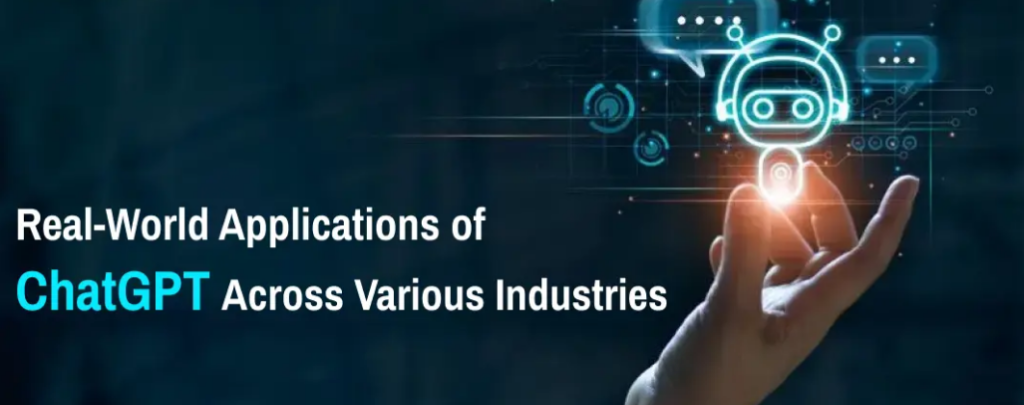
Hi Everyone!
This is Ravi Kumar and today I will let you know the case studies & examples of ChatGPT
ChatGPT, developed by OpenAI, is transforming various industries with its advanced natural language processing capabilities. This guide delves into the success stories of businesses using ChatGPT, exploring its real-world applications and benefits across multiple sectors.
Definitions
ChatGPT
ChatGPT is an AI language model developed by OpenAI, based on the GPT (Generative Pre-trained Transformer) architecture. It can understand and generate human-like text, making it useful for tasks such as customer support, content creation, and more.
Natural Language Processing (NLP)
NLP is a field of artificial intelligence that focuses on the interaction between computers and humans through natural language. It involves the ability of machines to understand, interpret, and generate human language.
Success Stories of Businesses Using ChatGPT

Customer Support Enhancement
Case Study: E-commerce Company
An e-commerce company integrated ChatGPT to handle customer inquiries. The AI provided round-the-clock support, addressing common questions about orders, returns, and product details. This resulted in:
a. Reduced Response Time: Instant replies improved customer satisfaction.
b. Cost Savings: Reduced the need for a large customer support team.
c. Increased Efficiency: Human agents focused on complex issues while ChatGPT handled routine queries.
Content Creation and Management
Case Study: Marketing Agency
A marketing agency utilized ChatGPT to generate blog posts, social media content, and email newsletters. The AI facilitated:
a. Consistent Content Output: Maintained a steady flow of content without overburdening the team.
b. Enhanced Creativity: Provided fresh ideas and perspectives, enhancing creativity.
c. Time Savings: Allowed the team to focus on strategy and client interaction rather than content drafting.
Personalized Customer Experience
Case Study: Financial Services
A financial services company incorporated ChatGPT into its mobile app to offer personalized financial advice. The AI analyzed user data and provided tailored recommendations, leading to:
a. Improved User Engagement: Delivered relevant advice, enhancing user experience.
b. Increased Customer Retention: Fostered loyalty and trust through personalized interactions.
c. Scalable Support: Enabled personalized services for a large customer base without a proportional increase in human resources.
Educational Assistance
Case Study: Online Learning Platform
An online learning platform deployed ChatGPT as a virtual tutor, assisting students with their coursework and answering questions. This led to:
a. Enhanced Learning Outcomes: Students received timely help, improving their understanding of subjects.
b. Accessible Education: Provided round-the-clock assistance, making education more accessible.
c. Scalable Tutoring: Supported more students without a proportional increase in tutors.
Healthcare Support
Case Study: Telemedicine Provider
A telemedicine provider integrated ChatGPT into its platform to offer preliminary consultations and triage. The AI facilitated:
Efficient Triage: Patients received initial assessments, guiding them to the appropriate care level.
Increased Access: Provided medical advice 24/7, increasing access to healthcare.
Relieved Workload: Allowed healthcare professionals to focus on critical cases while ChatGPT managed routine inquiries.
Real-World Applications and Benefits of ChatGPT in Different Industries

Retail and E-commerce
a. Chatbots for Customer Service: Automate support for order tracking, returns, and FAQs.
b. Personalized Shopping Assistance: Offer recommendations based on user preferences and browsing history.
c. Inventory Management: Automate responses related to stock availability.
Finance
a. Automated Customer Support: Handles inquiries about account details, transactions, and services.
b. Financial Advice: Provide personalized investment advice and financial planning.
c. Fraud Detection: Analyze transaction patterns and alert for suspicious activities.
Healthcare
a. Virtual Health Assistants: Offer initial consultations and health advice.
b. Appointment Scheduling: Automate the booking process for medical appointments.
c. Patient Follow-Up: Send reminders and follow-up messages to patients.
Education
a. Virtual Tutoring: Assist students with their studies and answer questions.
b. Content Generation: Create educational materials and resources.
c. Administrative Assistance: Help with enrollment processes and answer administrative queries.
Travel and Hospitality
a. Booking Assistance: Help customers book flights, hotels, and other travel services.
b. Travel Itineraries: Create and manage personalized travel itineraries.
c. Customer Support: Handle inquiries about travel plans, cancellations, and policies.
Human Resources
a. Recruitment: Screen resumes and schedule interviews.
b. Employee Support: Provide answers to HR-related questions and manage requests.
c. Training and Development: Create training materials and offer learning support.
Real Estate
a. Property Listings: Automate responses to inquiries about properties.
b. Virtual Tours: Provide information and schedule virtual tours.
c. Client Interaction: Manage communications with potential buyers and tenants.
Conclusion
ChatGPT is proving to be a transformative tool across various industries. Its ability to handle diverse tasks, from customer support to content creation and personalized services, showcases its versatility and potential. As businesses continue to integrate ChatGPT into their operations, more innovative applications and success stories will emerge, further solidifying its role in the future of AI and human interaction.
Thanks!